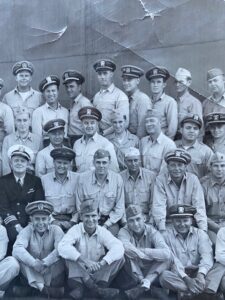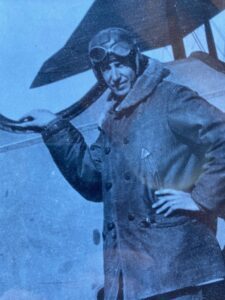One of the things we grandfathers can provide our children and grandchildren during the COVID crisis is some historical perspective, a view that encompasses the lives of our own parents, grandparents and great-grandparents and the myriad struggles they endured.
Here’s a quick run-down of what my ancestors lived through compared with what I’m dealing with.
1863: Albert Kidder Page, Great-grandfather. There were actually two Albert Kidder Pages. The first was in a Massachusetts Civil War regiment. He fell ill from malaria in the swamps of North Carolina. According to family lore his father took the train down south and brought him back to Boston to convalesce. Three days later, Albert died, leaving behind his pregnant wife. Three days after Albert’s death his wife gave birth to a boy, and she named him after his father. Albert Kidder Page became a physician in Boston.
2020: I have to work from home.
1917: Fred Fish, Grandfather. Gramp, as I called him, flew a biplane in World War I. His job was to photograph the enemy positions to provide intelligence. When I was a kid he used to show me his aerial photos of battles like Verdun. The blasted battlefields with deep craters and shattered, leafless trees looked like the surface of the moon. The most deadly thing of all, according to Gramp, was the biplanes themselves — rickety contraptions with only a joystick for some semblance of control. Shortly after Gramp’s return to Vermont, the Spanish flu killed more people than the war.
2020: I have to wear a mask.
1930: Bill Page, father. Dad grew up in the Great Depression, and his father died of tuberculosis when he was only seven. My grandmother had one of the only jobs women were allowed to have in those days — a secretary with low pay. Dad didn’t talk about it, but I know there were times he and his sister rummaged through trashcans in Boston for food. Dad ultimately was awarded a full scholarship to Tufts, and earned his graduate degree in chemistry from MIT.
2020: My favorite beef, flank steak, is nearly impossible to find.

My dad, William (Bill) Page, fourth from the left, aboard the U.S.S. Burleigh in the Pacific in WWII.
1945: Dad was a Lieutenant on the U.S.S. Burleigh, an attack transport ship in the Pacific. The Burleigh was dive-bombed repeatedly by Kamikazes during the hellish battle of Okinawa. On the rare occasions dad told his story, he described seeing the fanatical eyes of the Kamikaze pilots as they sped towards him, the cries for “smoke!” to shroud the ship, the roar of guns and the sight of a severed leg floating in bloody water. It wasn’t until I was an adult that I realized how scarred dad was by the experience. Whenever my mom accidentally served dad food in a red dish, his face became contorted with fear and rage, he’d clench his teeth and scream, “Blood!”
2020: My wife and I ordered a kayak on Amazon but got a notice a few days later that it was actually out of stock and they didn’t know when it would ship.
1968: My older brothers were in constant danger of being drafted and sent to Vietnam.
2020: One of my molars broke in February when the dentist’s office was closed due to the pandemic. I had to wait six weeks to get it repaired.
If my three grandchildren were with me now and not far away in quarantine, I’d tell them this:
“We are all so lucky to have each other. I love you more than anything in the whole wide world, and everything is going to be ok. I hope you will remember this time as you grow up, and look back at wearing funny masks. Bear in mind that when things are harder, it makes us tougher. You never met my mom and dad or my gram and gramp, but they are a part of who you are today; strong, kind, full of laughter and light. They’d be very proud of you. Now, let’s have some ice cream while your mom has a nap.”



